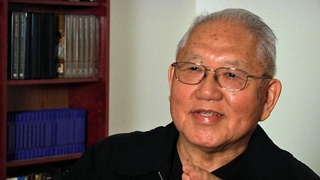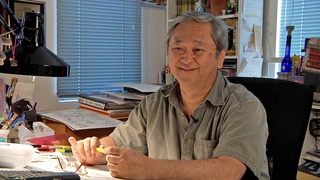Interviews
Main differences between Japanese and Japanese Americans
I guess my underlying feeling there is that Japanese Americans have been taught and actively pursued not being Japanese. Whereas Japanese know they’re Japanese and are very comfortable being Japanese. They may not be comfortable being anything else.
And in that way, maybe being Japanese American is better because—or not better, but it’s different. There’s an advantage there because Japanese Americans, I believe, have been so active in trying to be other people that they’re not Japanese—trying to be white Americans or just assimilate into whatever culture that they’re in. And I guess that helped me out, that assimilation and that ability to kind of melt in. Maybe I can never take a principle role in a group or something, but I can blend in, and I can function very, very well.
So maybe that’s an advantage. I guess the difference there is that one’s trying not to be what they really are. The other one is just what they are. That’s it.
Date: September 12, 2003
Location: Tokyo, Japan
Interviewer: Art Nomura
Contributed by: Art Nomura, Finding Home.
Explore More Videos


Dreamed of becoming an Enka singer
(b. 1981) Enka Singer

His clothes are part of his identity
(b. 1981) Enka Singer

Hopes everyone pursues their dreams regardless of race or heritage
(b. 1981) Enka Singer

Considers Pittsburg his home, but always wanted to live in Japan
(b. 1981) Enka Singer


The first concert in the United States (Japanese)
(b. 1981) Enka Singer








